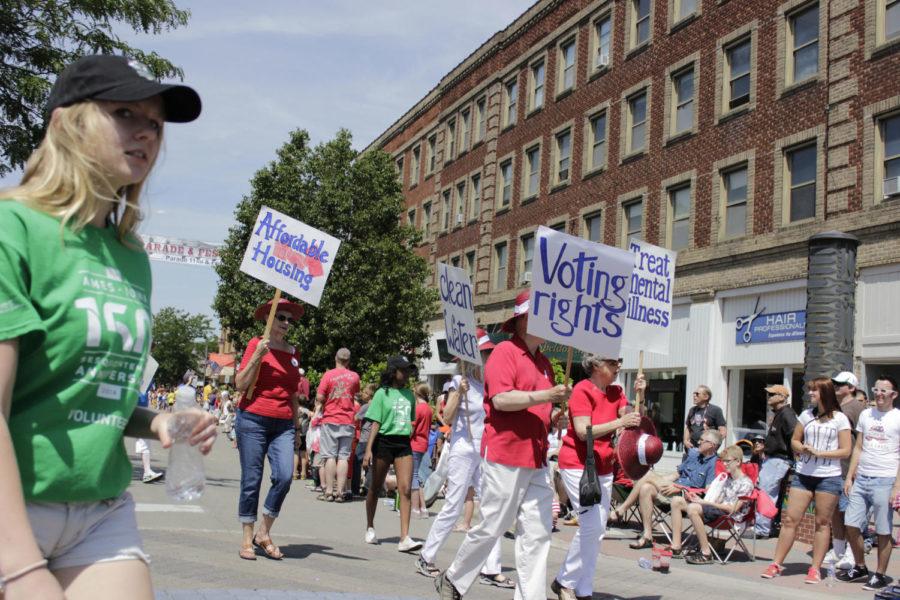The Declaration of Independence’s promise of equality has not yet been met
Rahemma Mayfield / Iowa State Daily
The Ames community annually participates in the Fourth of July parade which many organizations can march in. The League of Women Voters of Ames members marched in the 2014 4th of July Parade.
July 3, 2019
The unilateral Declaration of Independence the United States made July 4, 1776 proclaimed “that all men are created equal,” a vow that has been criticized as going unmet throughout history.
The very phrase “all men are created equal” has been subject to criticism, notably with the adjustment to “all men and women are created equal” in the Declaration of Sentiments at the Seneca Falls Convention on women’s rights in July 1848
Stacy Cordery, professor of history at Iowa State, said the concept of women being equal would never have “dawned on [the Founding Fathers],” and the phrase was not intended by them to be gendered.
Cordery said there were stirrings before the Seneca Falls Convention, though the movement for women’s equality “did not really rise to consciousness” until then.
At that convention, the organizers — many of whom became notable suffragettes, such as Elizabeth Cady Stanton — issued a Declaration of Sentiments calling for equality of men and women.
“It wasn’t until right before the Civil War that people thought about women’s rights,” Cordery said.
Following the Civil War, a coordinated international effort fought for women’s suffrage throughout the world — with notable contacts between British and American suffragettes. Stanton developed the idea of holding a women’s rights convention while at an anti-slavery conference in London.
July 4 2019 comes two days after the 100th anniversary of Iowa’s ratification of the 19th Amendment — granting women the right to vote across the whole of the United States once approved by a supermajority of states.
Notwithstanding the legal equality between men and women in the United States, women continue to face de facto discrimination. Nearly three-quarters of tenured, full-time faculty at Iowa State are men — and research at the university found students rate instructor’s effectiveness differently based on gender.
Furthermore, women continue to face a pay gap in annual earnings. As of 2017, there is a gender pay gap of 19.5% — and on current trends of change it would take until 2059 for the gap to be erased.
Nevertheless, Cordery said the “promise” of the words of the Declaration of Independence are what Americans can hang onto.
“When we can say we’re proud to be Americans … the implicit promise of the Declaration of Independence is one of those things [to be proud of],” Cordery said.







